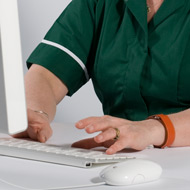Vet nurses must join RCVS register or cease practice

Around 1,000 veterinary nurses have not moved over to the register, but remain on the list.
A thousand veterinary nurses must now make the choice to join the RCVS register or stop practising, after a new Royal Charter was approved by privy council on November 5.
The charter officially recognises the college as a regulator of veterinary nurses, effectively combining the list and register.
Veterinary nurses on the RCVS register must adhere to the prescribed code of professional conduct and be subject to RCVS disciplinary procedures and other requirements.
According to the college's registrar, Gordon Hockey, about 1,000 veterinary nurses remain on the list.
Every year since the register was formed these 1,000 trained and qualified veterinary nurses have "voted" on their annual registration form NOT to be regulated by the RCVS but to remain listed.
In response to a question from Jacqui Molyneux at the latest RCVS Council meeting on November 6, Mr Hockey said he had written to listed veterinary nurses to inform them they will be automatically moved onto the register. If they decide they do not want to be on the register, they will no longer be able to call themselves veterinary nurses and will be breaking the law if they carry out procedures under schedule three of the Veterinary Surgeon's Act.
A consultation was launched in December last year to gauge opinions of the charter among veterinary surgeons, nurses and members of the public. However, just 11 organisations and 37 individuals responded, raising questions about the timing and methods of consultation and the absence of a simple yes/no vote.
Speaking at the council meeting, Ms Molyneux asked Mr Hockey if there had been any negative feedback on the Royal Charter. He said there had not and the response had largely been "overwhelming enthusiasm".
At the meeting, council members approved rules and protocols proposed in order to meet the requirements of the new charter and bye-laws.
The new charter will come into force as soon as it has been printed and sealed.
Lynne Hill, who chairs the VN preliminary investigation committee (PIC), requested that the council explore the possibility of suspensions as an option for some veterinary nurses who go through the disciplinary process. Mrs Hill believes that in some of the cases seen by the VN PIC, suspension may actually be beneficial to the veterinary nurse, although Mark Elliott raised concerns that this could make those nurses "pariahs" and cause them financial hardship.
Regardless of ones views on the pros and cons of regulation and whether this should be by the RCVS or "another body", it is hard to see how 1000 qualified veterinary nurses who have repeatedly rejected regulation by the RCVS can view this development with "overwhelming enthusiasm".



 The latest
The latest